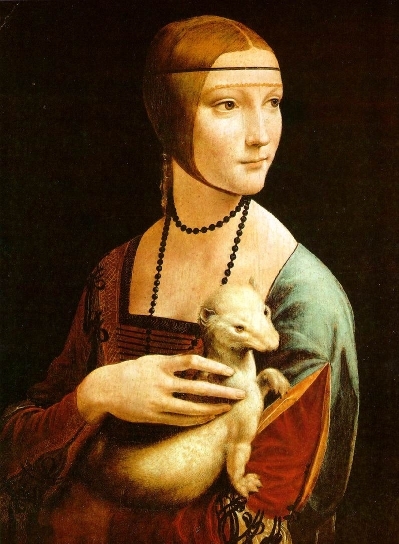|
  Day 11 Dramatic Monologue Day 11 Dramatic Monologue
A dramatic monologue is a type of
lyric poem in which a character delivers a speech explaining
his or her feelings, actions, or motives. It shares many characteristics
with a theatrical monologue: an audience is implied; there is
no dialogue; and the poet speaks through an assumed voice --
a character, a fictional identity, or a persona.
The speaker, who is not the poet, utters
the entire poem at a critical moment. The speaker has a listener
within the poem, but we too are his/her listener, and we learn
about the speaker’s character from what the speaker says. In
fact, the speaker may reveal unintentionally certain aspects
of his/her character.
The dramatic monologue as a poetic form achieved its first era
of distinction in the work of Victorian poet Robert Browning.
Browning’s poems “My Last Duchess” and “Soliloquy
of the Spanish Cloister,” have become models of the form.
His monologues combine the elements of the speaker and the audience
so deftly that the reader almost seems to have some control over
how much the speaker will divulge in his monologue.
Glenn Everett, in “Three Defining Characteristics of Browning’s
Dramatic Monologues,” proposes that a Browninesque
dramatic monologue has three requirements:
- The reader takes the part of the silent
listener.
- The speaker uses a case-making, argumentative
tone.
- We complete the dramatic scene from within,
by means of inference and imagination.
Poets.org discusses the form as a Persona Poem, and includes links to representative
sample dramatic monologues by several poets --
Cummings offers an in-depth study guide, complete with
annotations. There
is also a full lesson plan on this poem at EDSITEment
website.
|
S
5
10
15
20
25
30
35
40
45
50
55
|
My Last Duchess by Robert Browning
FERRARA
That’s my last Duchess painted on the wall,
Looking as if she were alive. I call
That piece a wonder, now; Frà Pandolf’s hands
Worked busily a day, and there she stands.
Will’t please you sit and look at her? I said
“Frà Pandolf” by design, for never read
Strangers like you that pictured countenance,
The depth and passion of its earnest glance,
But to myself they turned (since none puts by
The curtain I have drawn for you, but I)
And seemed as they would ask me, if they durst,
How such a glance came there; so, not the first
Are you to turn and ask thus. Sir, ‘twas not
Her husband’s presence only, called that spot
Of joy into the Duchess' cheek; perhaps
Frà Pandolf chanced to say, “Her mantle laps
Over my lady’s wrist too much,” or “Paint
Must never hope to reproduce the faint
Half-flush that dies along her throat.” Such stuff
Was courtesy, she thought, and cause enough
For calling up that spot of joy. She had
A heart-how shall I say?—too soon made glad,
Too easily impressed; she liked whate'er
She looked on, and her looks went everywhere.
Sir, ‘twas all one! My favour at her breast,
The dropping of the daylight in the West,
The bough of cherries some officious fool
Broke in the orchard for her, the white mule
She rode with round the terrace—all and each
Would draw from her alike the approving speech,
Or blush, at least. She thanked men—good! but thanked
Somehow—I know not how—as if she ranked
My gift of a nine-hundred-years-old name
With anybody’s gift. Who'd stoop to blame
This sort of trifling? Even had you skill
In speech—which I have not—to make your will
Quite clear to such an one, and say, “Just this
Or that in you disgusts me; here you miss,
Or there exceed the mark”—and if she let
Herself be lessoned so, nor plainly set
Her wits to yours, forsooth, and made excuse—
E’en then would be some stooping; and I choose
Never to stoop. Oh, sir, she smiled, no doubt,
Whene’er I passed her; but who passed without
Much the same smile? This grew; I gave commands;
Then all smiles stopped together. There she stands
As if alive. Will’t please you rise? We’ll meet
The company below, then. I repeat,
The Count your master’s known munificence
Is ample warrant that no just pretense
Of mine for dowry will be disallowed;
Though his fair daughter’s self, as I avowed
At starting, is my object. Nay, we’ll go
Together down, sir. Notice Neptune, though,
Taming a sea-horse, thought a rarity,
Which Claus of Innsbruck cast in bronze for me!
|
|
| |
|
|
The dramatic monologue lends itself to,
well, dramatization. In particular, this poem shows up on YouTube
in several excellent versions. View a student video of the poem.
Your Turn: Now you get to try your hand at writing a dramatic
monologue of your own. Consider carefully what critical moment
you will choose for your speaker to reveal some inner quality.
Set the stage for your revelation. Be prepared to present your
poem in class. You may find the article Writing a Dramatic Monologue helpful.
Listen to a reading of this
poem. |
